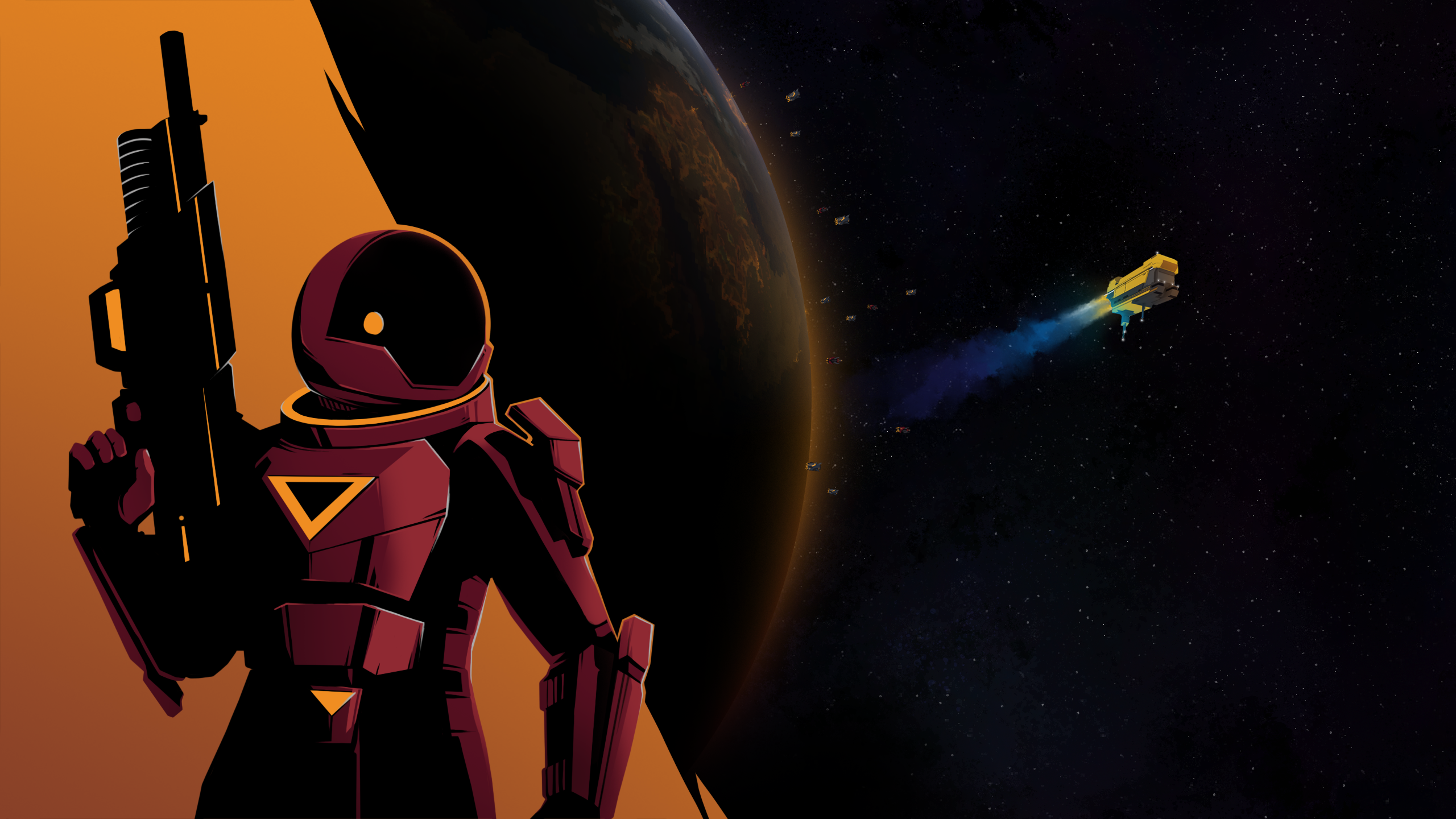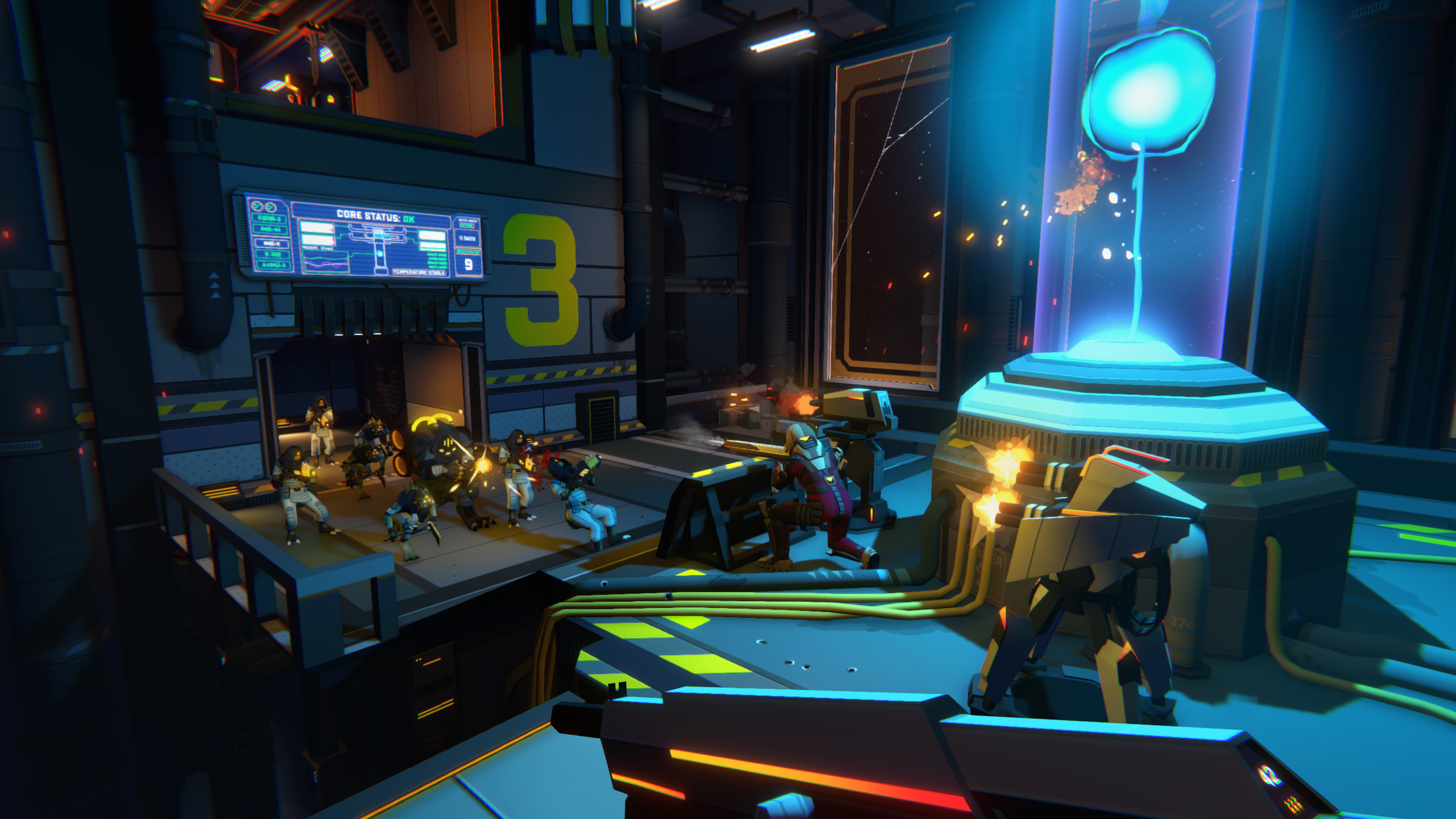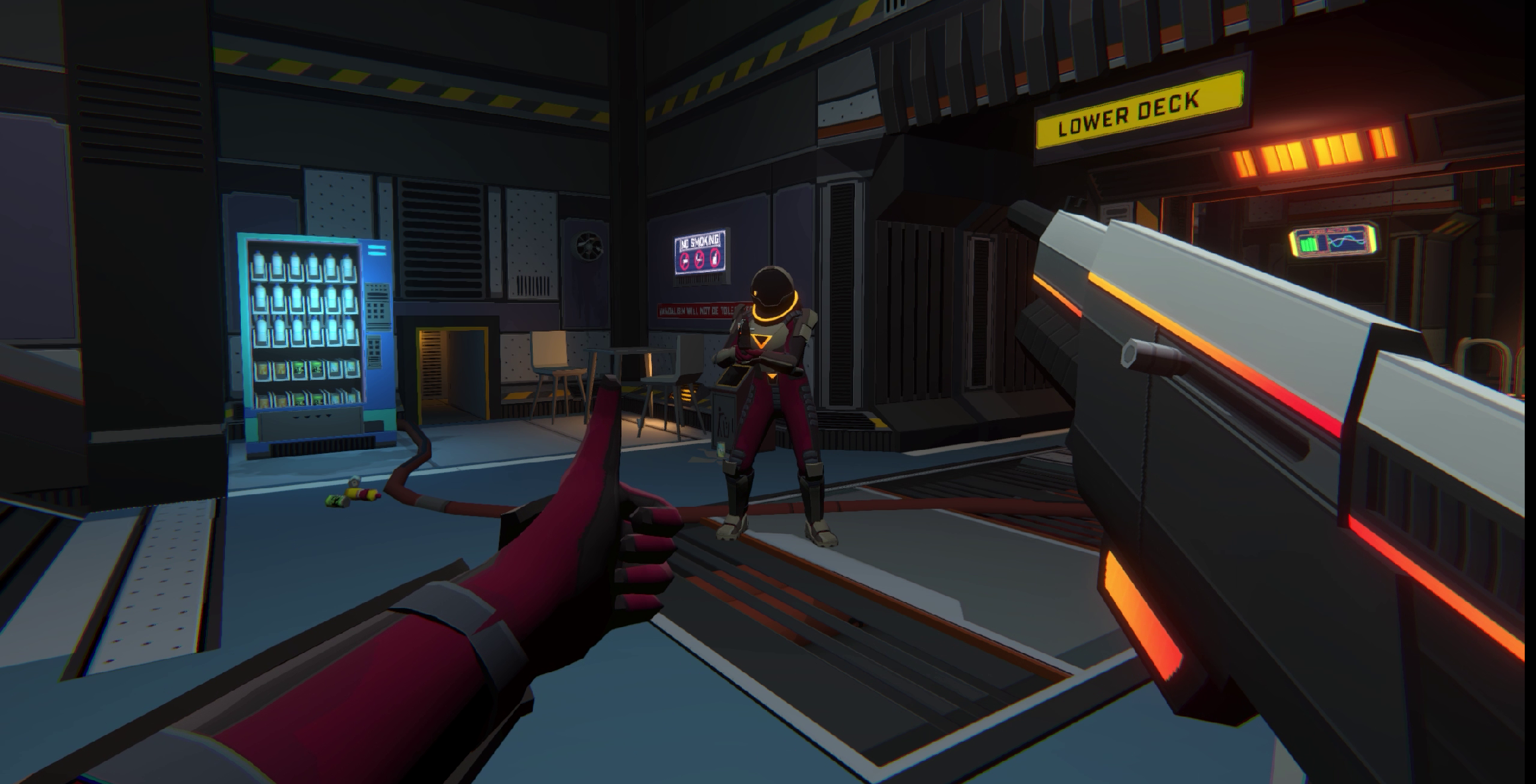Gary Burchell of Fireblade teaches how to put Action back in Defence in SENTRY!

Interview & words by Hugh Wybourne
Ask anyone in the know where the beating heart of the UK games industry resides and they’d likely point to the humble Guildford, or at least afford it a podium position as one of those important veins in your neck. Either way, the long history of innovation that began here decades ago carries on to this day with teams of all sizes prepared to bring fresh ideas to underutilised genres.
The team over at Fireblade Studios have headed this call recently to try and put the Action back into the Action-Defence genre. With such darlings as Orcs Must Die! or Sanctum, and with the attention drawn by the quietly-successful Dome Keeper from last year, it’s fair to say that whilst this style of game has had its successes it has unfortunately been a little while since the limelight has landed on this small subgenre.
So when SENTRY snuck its way into the October 2023 NextFest it caught the attention of the AD/FPS Tower-Defence community and the game was released into Early Access on Steam just last month to a strong and excited reception. Strongly different to their studio’s last game, in a genre that is far outside of the average gamer’s portfolio, and after one of the industry’s most troubling years we were overjoyed to see the success the game has seen so far.

Nonetheless, when we got to speak with Founder and Director Gary Burchell, we had to ask:
What inspired you to make SENTRY?
GB: We normally start by looking at genres of games we like to play, and then think about ways we could bring something new to that genre. SENTRY is a FPS/TD game in a similar genre to Orcs Must Die! or Sanctum. The Action Defense genre isn’t one that has changed much in recent years, so it felt like it was a good opportunity to introduce something new and exciting.
With thoughts of the opening of Star Wars: A New Hope, or the Borg taking over the Enterprise in Star Trek: First Contact, this started to shape our ideas around what defending a spaceship would really feel like.
You can really feel their inspirations when playing, and the gameplay is genuinely cinematic in how the combats play-out. You really feel like a desperate hero in their last-stand moment.
Can you tell us about the development journey behind the game? Any challenges or memorable moments you'd like to share?
GB: After we finished our previous game (Abandon Ship, a pirate strategy game) the most sensible business decision would likely have been to roll onto a sequel. However we felt tired after four years of development (two pre-release and two in Early Access) so wanted to do something more immediate with one-to-one player control that you don’t get in a strategy game.
Because our first game was self-published and performed well, it allowed us to continue our self-publishing journey with SENTRY. Major milestones in the project included:
- The release of our Announcement Trailer, something we poured a lot of love into. This trailer proved very popular across various social channels, especially on TikTok and Reddit, the latter driving a viral r/gaming post that reached 7th on the front page of Reddit
- Participating in the October 2023 Steam Next Fest. The response to our demo from the community was overwhelmingly positive and resulted in our biggest period of Wishlist accumulation. Valve released a roundup of the most popular demos in that Next Fest and we placed 24th out of over 2000 participating demos!
It’s no secret that virality can do a lot for promoting small indie developers, especially as it organically rewards genuine creativity and talent from people that can’t necessarily afford to push into traditional ad space. Next Fest has also proven to be an incredible success since its rebranding from the much milder-sounding ‘Steam Game Festival’ in 2021. The weeklong event is a fantastic opportunity to explore literally 1000s of upcoming games, almost all of which are made by small independent developers.
Could you share any insights on the design process?
GB: Despite our lofty ambitions for moving the genre in a new direction, we knew none of this would matter if we didn’t get the basics right. We spent a lot of the game’s development working on the feel of combat and ensuring it felt responsive and fun
One challenge was the balance between our enemies – whose AI skewed closer to FPS than tower-defence – and their priorities. If they focused on the level goal too much, it didn’t feel right. If they focused on the player too much, they’d never achieve their objectives – this tipped back and forth throughout development until we found the sweet spot. If you think about enemies in a FPS, they’re essentially waiting for the player to enter their area, they fight and either win or die. In SENTRY, the enemy is moving through the players area – and this seemingly simple problem was particularly tricky to solve.
What role did player feedback play during development, and how did it influence the final product?
GB: Player feedback was absolutely crucial to how SENTRY ended up – whether that be public demos at events like GDC or PAX, through to Next Fest and our own private playtests. We watched countless hours of playtest footage to help resolve friction points. There’s nothing more important (or at times, scary) as watching other people play your game!
How do you envision players experiencing your game? Any specific emotions or reactions you hope to evoke?
GB: It’s always nerve-wracking when you’re doing something new because you’re never 100% sure how the community will receive it, but thankfully it’s gone extremely well! The whole game is engineered to naturally create moments where you can snatch victory from the jaws of defeat, and to see players sharing their near-misses and tales of valiant defeat or heroic victories has been fantastic.
It’s really impressive to see developers so in-touch not just with the delicate balance of mechanics at the core of their game, but also with the community and the way those players feed back into the still ongoing development aspects of Early Access.
What sets your game apart from others in its genre? Any unique features or mechanics players can look forward to?
GB: Taking cues from our previous game, we felt that the combat experience would be greatly supplemented by higher-level layers that linked battles. Action-Defense games are traditionally linear affairs, where failure results in replaying a checkpoint – we didn’t want to go down this route, so came up with a campaign that has an FTL-like star map you navigate, and when enemies attack they board your vessel and will attempt to fight their way to and destroy the ship’s core.
You choose where to fight them, which is where the FPS/TD gameplay commences. What was great about this system was that it meant that failure wasn’t a blocker – you could lose a level and the enemy would just progress through the ship and you could fight them in this new location – think of it as losing the battle, but not the war. These layers would feed into each other, so your performance in combat would have future consequences and vice-versa.
One other fundamental aspect we changed was the balance between traps/turrets and the player. In traditional action-defense games, the traps do the majority of the work and the player chips in occasionally. If you do a good enough job optimising your kill-box then you don’t have to fight at all! This didn’t really fit into our vision of what a desperate defence of a spaceship should feel like, so we changed it so that the player was fast and powerful, with the traps in a supporting role. This meant enemies skewed more toward Halo-esque AI than zombie-like Tower Defence AI, which helped fulfil our goals of combat feeling like an intense battle.
The way they describe SENTRY and how it plays creates a real sense of excitement and passion for the genre and what it’s capable of. There’s a great saying often thrown around that ‘players if let unchecked will optimise the fun out of a game’, and I think Gary and his team have understood (and skirted) this danger perfectly. We finished off with a few quickfire questions that let him ruminate a bit on the team’s recent successes and what’s coming up in their future.
As a developer, what aspect of the game are you most proud of, and why?
GB: I’m extremely proud of what our tiny team has achieved. At Fireblade our goal is to ‘punch above our weight’ and with one artist, one designer and one programmer it certainly feels like we’ve done that again – in a completely different genre than we did on our last game. The masses of positive reviews and comments from the community are also an absolute pleasure to see.
How does the game's release align with your long-term goals?
GB: As a studio, we’ve always wanted to self-publish our titles. SENTRY looks like it’ll continue the legacy of our previous game, in that it’ll enable us to do the same with our next project, too. Ultimately, we love what we do so anything that allows us to continue doing that is a big success.
Finally, what's next?! Any hints or teasers about future projects or updates?
GB: We’ve still got to run through our Early Access Roadmap, which should take between 9 and 12 months. Co-op is a hotly anticipated feature that’ll be coming at roughly the mid-point of that. After, it’ll be console versions and hopefully a VR version too. The new ideas in SENTRY feel like they’re a viable offshoot for the genre, and while I wouldn’t be surprised to see these elements cropping up in other FPS and/or TD games it’s definitely something we’d like to explore in more depth in future games.

And there you have it, what could be considered almost a fairytale beginning to what is hopefully going to be a game that continues to grow and thrive as a standout example of the genre. Through the combination of talent, testing, and taking in mind the feedback of the player experience Fireblade Studios have achieved something really quite impressive.
If you’d like to support them and try out SENTRY for yourself it’s available now on Steam, and the team can be found and followed on all the usual social media platforms. We’d like to thank Gary for his time and wish the team at Fireblade all the luck for their future development. Though we will say, if their track record has shown anything, their combined talent shouldn’t need much luck at all.